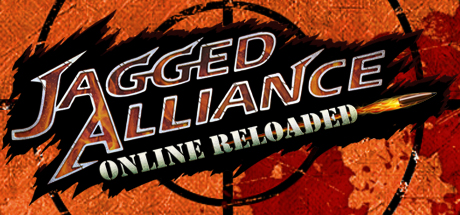- ARPDAUPosted 13 years ago
- What’s an impressive conversion rate? And other stats updatesPosted 13 years ago
- Your quick guide to metricsPosted 13 years ago
Steam is not a monopoly
I’ve some good (and not so good) comments on my post Five reasons why Steam will destroy PC gaming.
Peter Boivin, a US anti-trust attorney, provided a thoughtful counter-argument. It was so relevant I thought I would include it as a full post of its own.
I am a competition lawyer who deals with these kinds of questions on a daily basis. Having a large percentage of sales (a high market share) is simply one of a number of questions one must ask to determine whether a company has a monopoly or monopoly power.
Is Steam a monopoly?
There are two basic ways to look at whether a company is a monopoly. The first is pretty rare, but you look to see whether the company can control prices. I am not talking about those super Steam sales, since lower prices are always good for the consumer (unless they are below cost, but that’s another matter entirely), but rather the ability to raise prices about competitive levels. I haven’t seen any evidence of this. As far as I am aware the prices you find on Steam are consistent with the prices you’ll find in the brick & mortar stores and on the smaller digital distribution companies.
The more common way to try and define monopoly power is to define the “relevant market” and see what share of sales a specific company has. Defining the relevant market is key. For example, if you’re talking Coke and Pepsi and define the relevant market as carbonated soft drinks, these two companies would have a pretty big share. If you defined it more narrowly, cola-flavored carbonated soft drinks, an even higher share. If you were to define the market more broadly, soft drinks or, say, all drinks, then there shares plummet.
Same goes for Steam. If you’re talking simply “Digital Distribution On PCs”, its share is likely high. If you throw brick and mortar stores (like Gamestop, Best Buy, etc.) or even on-line stores (like Amazon) then that share is likely pretty low.
One way to determine whether two products are in the same market is to try and test to see how the price of one product affects the price of another. For example, how many consumers would switch from buying a PC game on Steam to buying a PC game from Best Buy if Steam raised its prices by 10%? If enough people would switch, then they are likely in the same market.
It’s about more than just market share
Market share, however, is just the beginning of the analysis. You also have to look at things like barriers to entry and alternative forms of distribution. How hard would it for another company to enter the market if Steam rose prices? Or if Steam refused to carry titles from certain publishers? Can companies effectively digitally distribute their own games without the need to use Steam?
Based on my understanding of everything and because it’s my nature, I think there are stronger arguments for the Steam is NOT a monopoly side of things than the Steam IS a monopoly. This is based on the fact that I do believe their pricing is restricted by brick and mortar stores and because of ease of entry/alternative forms of distribution. It’s not like Steam prevents you from using other digital distrubtion platforms or other digital distribution means.
Pretty much every PC game I have purchased since Dec 08 (save one game, the unfortunate “Blood Bowl”) I have bought from Steam. Most purchases were made because of price (older games) or convenience (newer games). I downloaded “Blood Bowl” from the company’s own web store because it wasn’t available on Steam. I had no problem doing so. If it turned out Steam was jacking up prices, I would either get off my ass and walk to GameStop or remain on my ass and order it off Amazon with, like, three clicks of a mouse button.
To sum, Steam doesn’t have market power and would likely be seen to compete with both on-line retailers like Amazon and brick-and mortar-retailers like Best-Buy and Gamestop in a market for the “sale and distribution of PC games.”
Acting “before it’s too late” will only stifle innovation
As for the government “acting before it’s too late”. That’s not how it works. You can’t place restrictions on a company because you’re afraid they might become too powerful, unless that company is becoming too powerful through illegal means. By all accounts, Steam has reached the point it is at now – outselling everyone by a factor of 10 – because it is offering a solid product, lower prices, and is innovative. You can’t shackle companies for stuff like that. That’s only going to chill innovation. Why work hard and make a fantastic product that’s better than anything else if the government is just going to punish you for it?
There is a reason why Microsoft got dinged by the DOJ and European Commission. They were engaging in illegal activities, such a monopoly leveraging and bundling (using their legal monopoly in system operations to grant an illegal monopoly in the internet browser market). Eventually, if a company gets too big, like a Google, competitors, customers and suppliers start complaining and that’s when the door opens. Until then, you can’t just go after a company based on fear and unfounded speculation.
Peter is a antitrust attorney in the United States who has been practicing for 10 years. In addition to his training in the United States, Peter also spent three years working on European Competition matters in Brussels, Belgium.












